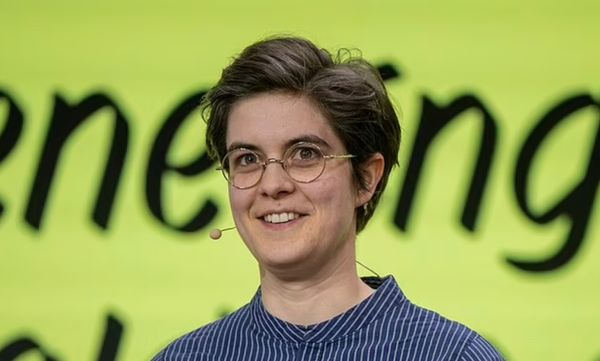
Marlene Engelhorn, an Austro-German heiress residing in Vienna, is on a remarkable journey of giving back. Her inspiring story challenges the norms of wealth inheritance and taxation, as she seeks to redistribute her substantial inheritance and advocate for wealth redistribution. At the age of 45, Marlene inherited an estimated $4.2 billion, a stroke of luck in the “birth lottery” as she calls it. But instead of reveling in her newfound fortune, she decided to take action and make a difference.
Marlene’s wealth originates from her family’s historic chemical company, BASF, and the sale of Boehringer Mannheim, a pharmaceutical and medical diagnostics equipment company. With an estimated net worth of $4.2 billion, Marlene found herself in a position of immense privilege and power. However, what sets Marlene apart is her deep-seated belief in the need for wealth redistribution.
Marlene openly expressed her dissatisfaction with Austria’s lack of inheritance tax, which was abolished in 2008, making it one of the few European countries without a death tax. In her own words, she said, “I have inherited a fortune, and therefore power, without having done anything for it, and the state doesn’t even want taxes on it.” This conviction drove her to take action even before her inheritance materialized.
For over a decade, Marlene actively campaigned for tax policies that would impose heavy taxes on her wealth and promote government-led redistribution. She co-founded “Tax Me Now,” a group of affluent individuals in Germany who advocate for higher taxes on their earnings. Her dedication to this cause led her to participate in a Millionaires for Humanity event in Amsterdam, where she advocated for higher taxes on the wealthy.
Marlene’s philanthropic efforts go beyond personal financial contributions. She aims to involve the public in the decision-making process by establishing a citizens’ group known as the ‘Good Council for Redistribution.’ Inviting randomly selected Austrian citizens aged over 16, she wants to assemble a diverse council representing various age groups, social classes, and backgrounds. Her vision is to have these individuals collaborate with academics and civil society organizations to ensure inclusivity and effective wealth redistribution.
Marlene firmly believes in wealth redistribution, even in the absence of effective political action. She stated, “If politicians don’t do their job and redistribute, then I have to redistribute my wealth myself.” Her hope is to see her wealth put to good use in addressing societal inequalities and injustices.
To facilitate the council’s meetings, Marlene ensures childcare services and covers travel costs, providing each participant with $1,300 for each attended weekend. She views these discussions as a “service to democracy” and fully entrusts her assets to the chosen 50 individuals, emphasizing, “I have no veto rights.” However, in the event that the council cannot reach a decision on fund allocation, the money will revert to Marlene.
Marlene’s journey transcends mere wealth redistribution; it challenges the notion of privilege and acknowledges its role in society. She recognizes that her upbringing in a mansion with privileges like a garden gave her a narrow perspective of the world. Now, she strives to use her privilege to bring about positive change.
Marlene’s actions have sparked a broader debate on inheritance tax in Austria. The debate continues between political parties, with the Social Democrats advocating for its reinstatement and the People’s Party opposing it. But regardless of the outcome, Marlene Engelhorn’s story is one of profound social consciousness and a commitment to using her privilege for the greater good.
Her journey challenges conventional notions of wealth and power, inspiring us to reevaluate our roles in promoting a fair and just society. In a world where wealth often begets more wealth, Marlene’s actions stand as a testament to the potential of individuals to effect meaningful change, one substantial inheritance at a time.





